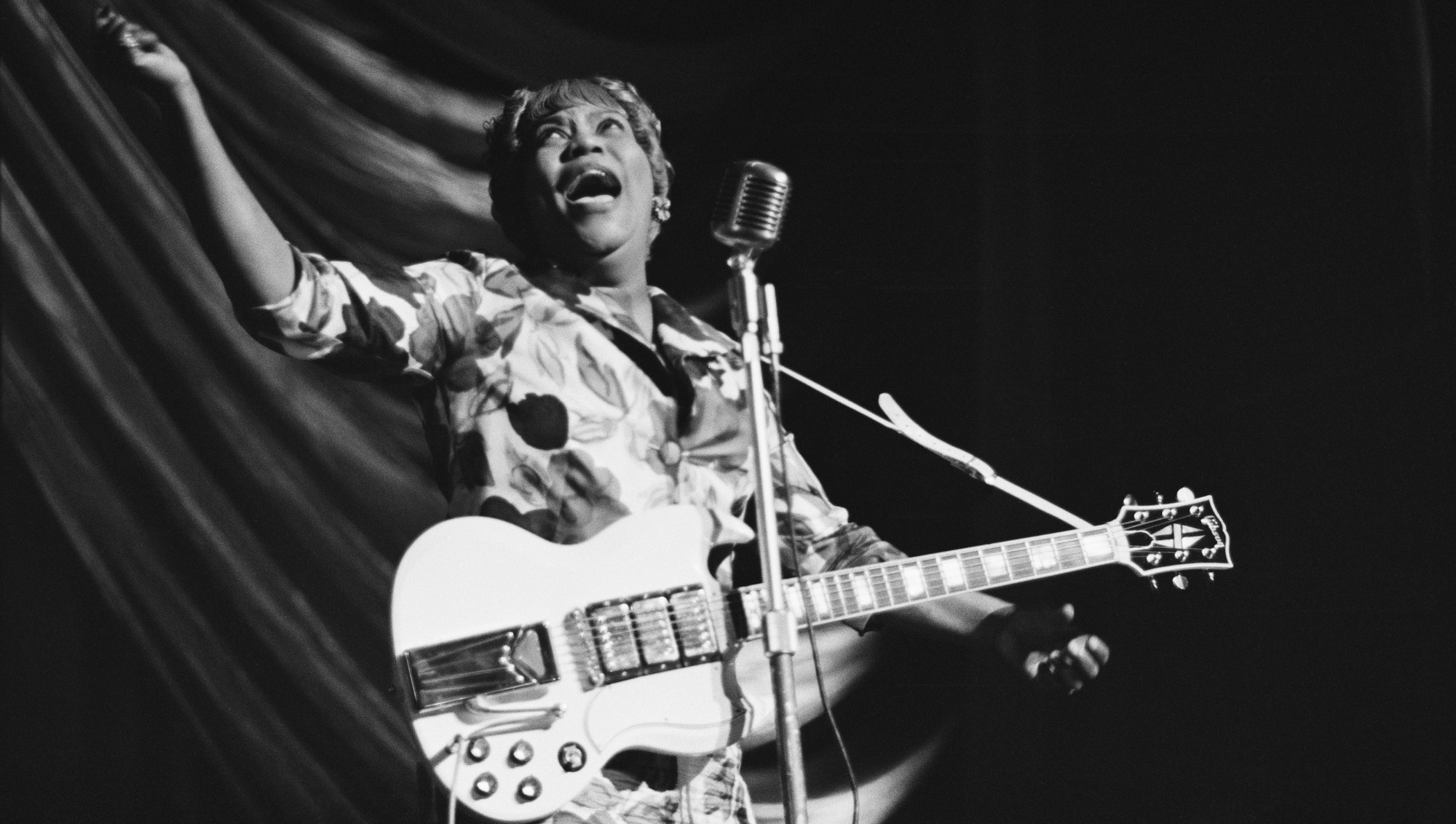
Muddy Waters unquestionably had a tremendous influence on the British blues-rock revolution of the 1960s. Hell, the most famous blues-influenced combo of them all – the Rolling Stones – named themselves after one of Waters' songs.
Waters first came to the UK in 1958, surprising audiences expecting the acoustic blues of an earlier generation with his aggressive Telecaster work, and angering some of the conservative-minded music critics in attendance. Though he often met with a cool reception at the time, the ripple effect from the few aspiring guitarists who enjoyed Waters' performances – and were inspired by them – has often been credited as the first spark in the eventual British blues boom.
As is often the case, though, this story isn't quite as simple as its often been presented.
A year before Waters toured the UK, Sister Rosetta Tharpe – the Gibson-toting guitarist who took the gospel she grew up on and injected it with skillful, spirited, and uninhibited electric guitar playing that was light-years ahead of its time – did so herself.
Sharing bills with the Chris Barber Jazz Band, Tharpe brought virtuosity, fire, and a rambunctious stage presence to audiences who (as you can hear in the recording of This Train, taken from Tharpe's December 9, 1957 performance at the Manchester Free Trade Hall) often didn't quite know what to make of it.
As would be the case with Waters the following year, some critics were left quite cold by how radical Tharpe's playing was in the context of how American folk, blues, and gospel music was understood in the UK at the time.
Though he had kind words to say about Tharpe's overall six-string skill, critic Bob Dawbarn, for instance, bemoaned how her “long-admired guitar playing [was] transformed through a jangle-box into a shambles of slurring sound.“
Though Tharpe wasn't the first American blues guitarist to tour the UK, previous visits – from the likes of Josh White, Lonnie Johnson, and Big Bill Broonzy – had been acoustic affairs. Tharpe's shows were anything but – showcasing her aggressive fingerpicking style and love of driving tube amps deep into the red.
Chris Barber himself – who would also share the bill with Waters the following year – has said repeatedly that it was Tharpe whose playing far more closely matched the thunderous blues-rock that would come from the UK in the mid- to late-'60s.
“Rosetta Tharpe was twice as loud [as Waters was the following year]... three times as loud as that, really,“ Barber once wrote. “She had a decent amplifier. She was loud and great and nobody complained about her.“
It was this – Tharpe's first trip to the UK – that would help pave the way for future electric blues guitar pioneers to make the trip across the pond.
Tharpe herself would return to British shores as well, playing a particularly influential show on May 7, 1964 at the Wilbraham Road train station in south Manchester. In the audience on that particular day were a number of aspiring guitarists – including Eric Clapton, Jeff Beck, Keith Richards, and Brian Jones.
Finally inducted into the Rock and Roll Hall of Fame in 2018, Tharpe is now finally receiving credit for being as ahead of the game as she was, guitar-wise. As she explained to The Daily Mirror in 1957, “All this new stuff they call rock ’n’ roll, why, I’ve been playing that for years now.“







